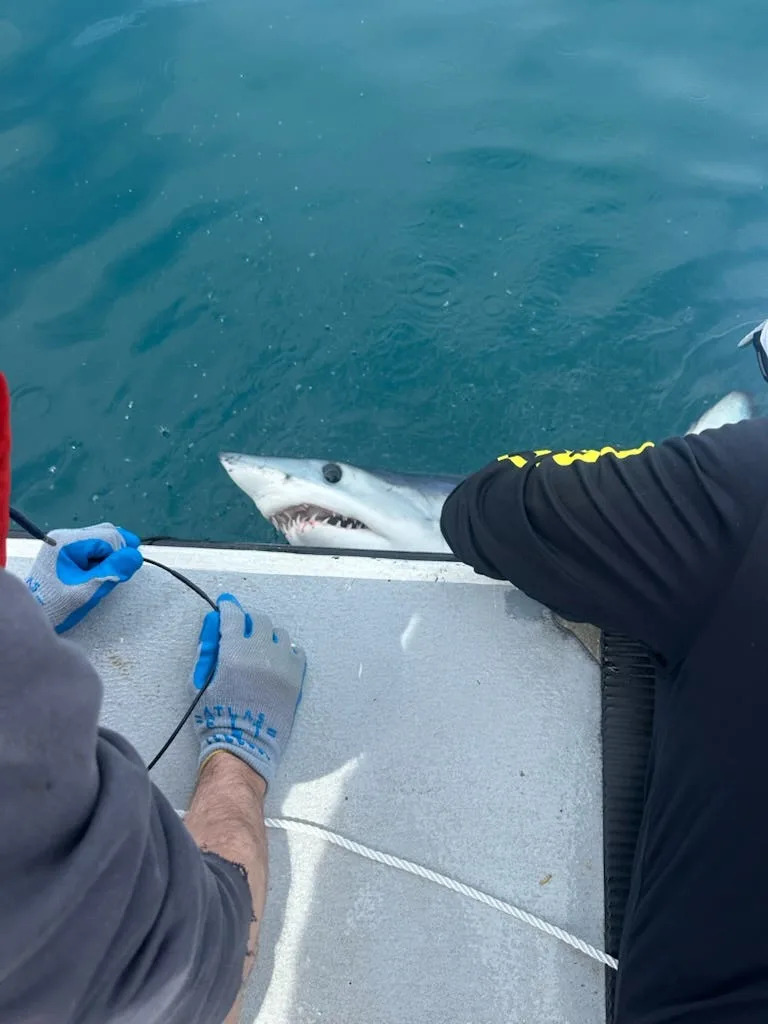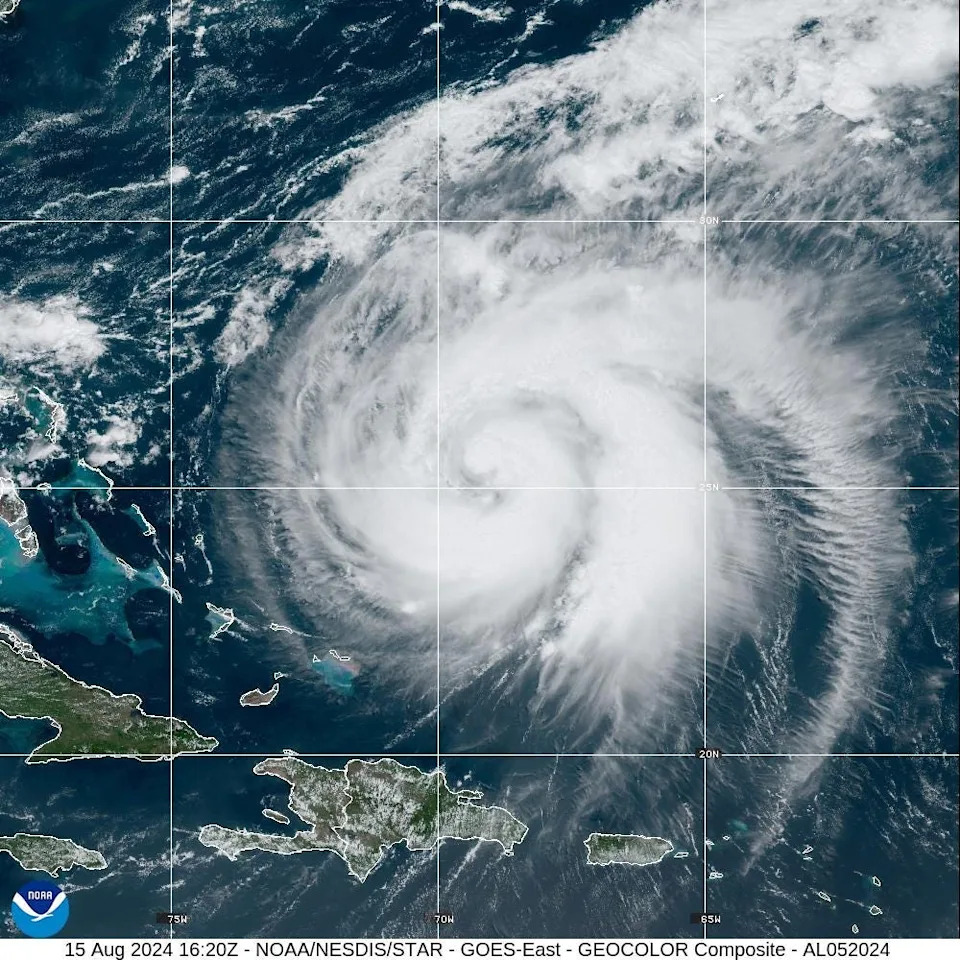It's not a schlocky TV movie or teams in a hockey game. Sharks vs. hurricanes is real science.
Researchers are looking at how sharks can help gather ocean data for improved hurricane predictions by using sharks as freely moving monitors – by putting sensor tags on the fish. The goal is that the sharks will gather temperature and other data that will go towards better forecasts of hurricanes – data that's challenging or expensive to get elsewhere.
"By attaching these tags ... to sharks, which are wide-ranging, mobile predators, we will be able to observe a much larger part of the ocean that typically remains unobserved," said marine ecologist Aaron Carlisle of the University of Delaware, in an email to USA TODAY.
He said it's not so much that we can't obtain these data using other means (such as vessels or autonomous vehicles), it's that those other platforms are very expensive and are limited in where they can go. In addition, "remote sensing via satellite-based sensors only looks at the surface, and it is what is going on below the surface that is really critical for many oceanographic/climate processes (such as hurricanes)."
Water temps drive hurricane formation
According to Carlisle, water temperature, and how it changes with depth, is what drives ocean heat content, and that is generally what drives hurricanes. He said salinity is important too, but is less critical for this particular issue in this region. Indeed, according to the National Weather Service, the first condition for hurricane formation is that ocean waters must be above 79 degrees F.
"Below this threshold temperature, hurricanes will not form or will weaken rapidly once they move over water below this threshold. Ocean temperatures in the tropical East Pacific and the tropical Atlantic routinely surpass this threshold," the weather service said.
 A mako shark is tagged for research in the Atlantic Ocean.
A mako shark is tagged for research in the Atlantic Ocean.What species of sharks are being used?
Blue sharks and mako sharks are two of the species that were the best suited to carry these tags, due to their movement and diving characteristics.
This isn't the first time animals have been used in a similar way for scientific research. Animals such as seals and narwhals have been tagged to track hard-to-reach areas in the Arctic and Antarctic, the Washington Post reports. Dolphins and whales have also been used by Russia for military purposes.
 A satellite image shows Hurricane Ernesto in the eastern Atlantic Ocean on Aug. 15, 2024.
A satellite image shows Hurricane Ernesto in the eastern Atlantic Ocean on Aug. 15, 2024.Will the data captured by the sharks be used during actual hurricanes?
"Yes, our goal is to have a 'fleet' of sharks carrying these tags during the hurricane season, and they will be providing real-time oceanographic data across the North Atlantic that will be fed into various ocean models that are used to predict hurricane strength, intensity, direction, etc.," Carlisle said in an e-mail.
So far, his team conducted tagging experiments with the sharks in May, with some success.
"As to whether the sharks will be in the actual hurricanes remains to be seen, but I suspect they will avoid them and won't be surfacing during hurricanes!"
Is the goal to have the sharks deployed this year, during the 2025 season?
This year, researchers are still working out bugs and are limited in the number of tags that can be deployed due to the continuing after-effects of the COVID-19 pandemic, which had a huge impact on this project, Carlisle reported.
"Our hope, if we obtain sufficient additional funding to keep things moving forward, is that we will be actually doing this type of work on a larger scale in 2026 (if lucky) or more likely 2027."
Funding from the National Oceanic and Atmospheric Administration has been more than satisfactory for the project so far, and Carlisle said "the agency has been incredibly supportive of us throughout this process." The teams' partner, the Mid-Atlantic Regional Association Coastal Ocean Observing System, has also been helpful.
NOAA budget cuts: Dramatic budget cuts at NOAA could put weather forecasts in peril, lives in danger
Are the sharks harmed by having the tags attached to them?
"That's a topic that we are keenly aware of in our field," Carlisle said. "Attaching anything to an animal will have some impact on the animal, but we do everything in our power to minimize any negative impacts on the animal."
In addition, Carlisle and his team go through a thorough permitting and review process that ensures they do everything they can to minimize impacts on animals. Beyond that, he said they need the animals to be "happy and healthy" in order to provide the team with good data, as they are carrying very expensive equipment (each tag costs about $6,000), so if the tag has significant deleterious impacts on the animal, "we aren't just hurting the animal but we're essentially throwing the tag away."
The tags will not be on the animals permanently: researchers use parts that will corrode over time, allowing the whole tag package to fall off the animal.
This article originally appeared on USA TODAY: Hurricane researchers plan a 'fleet' of sharks to help forecasts














